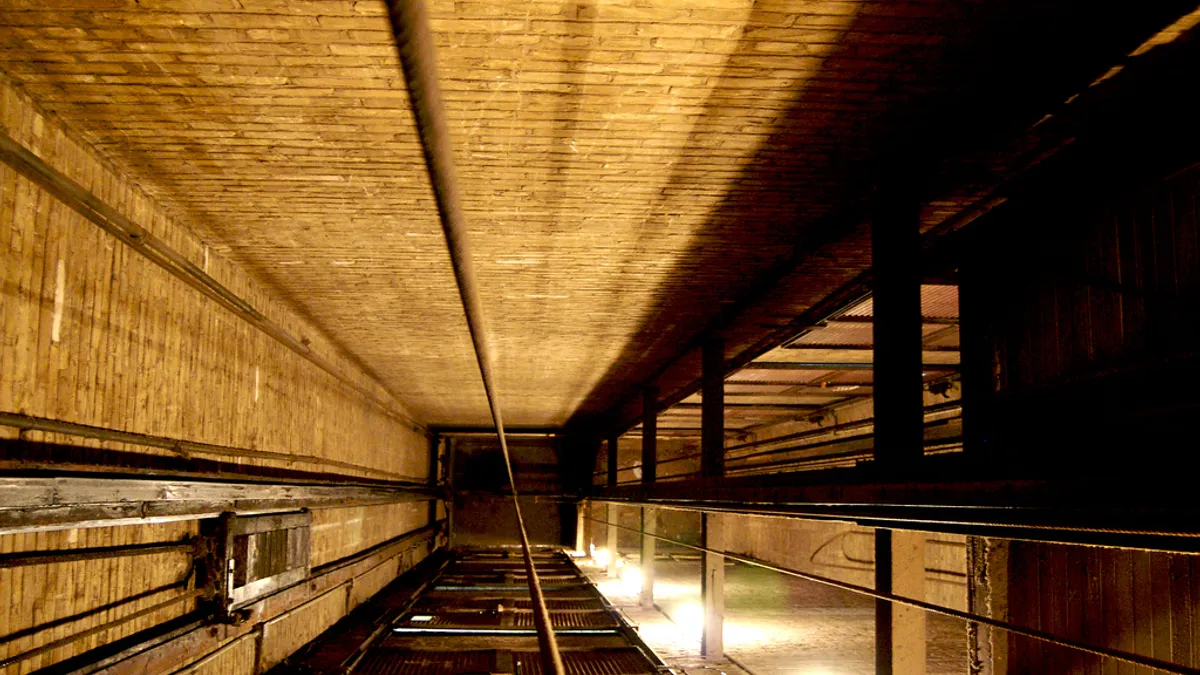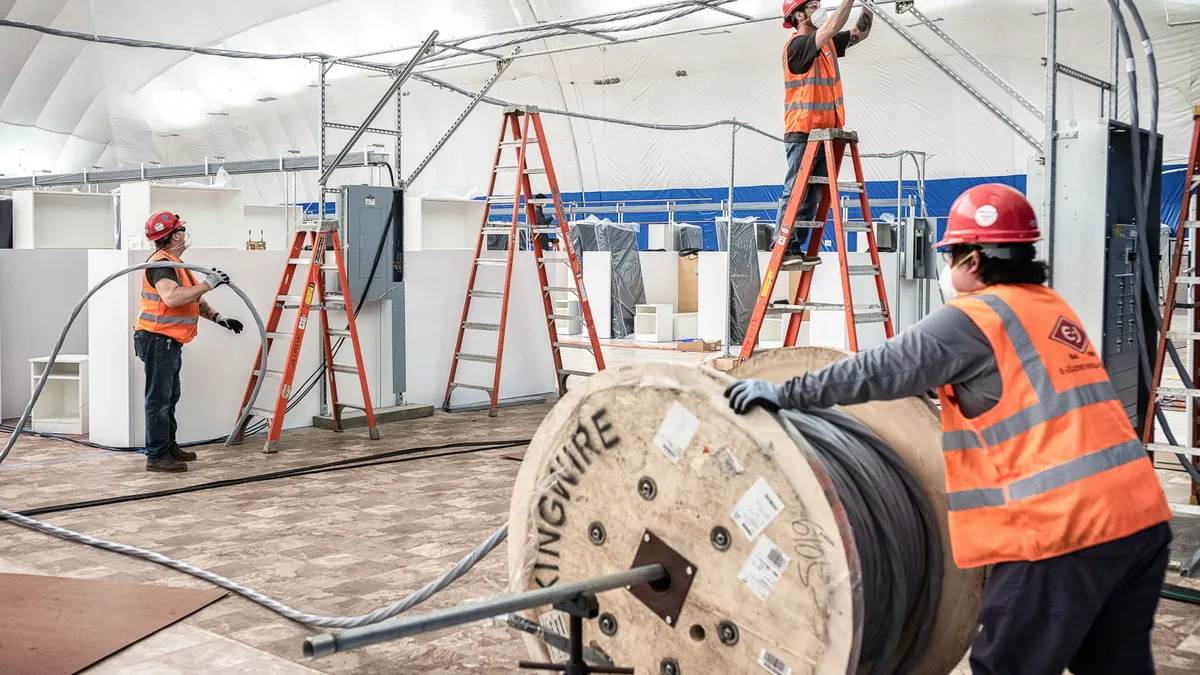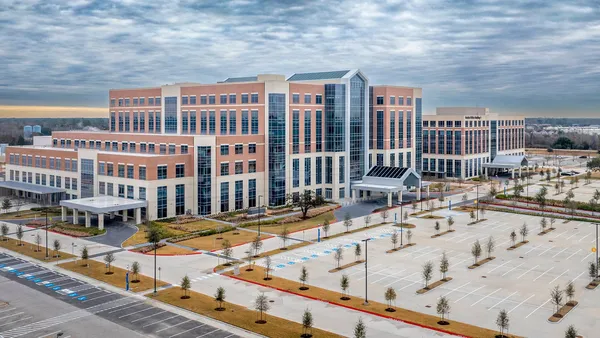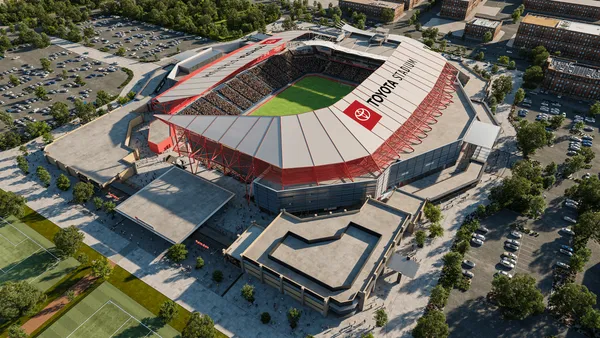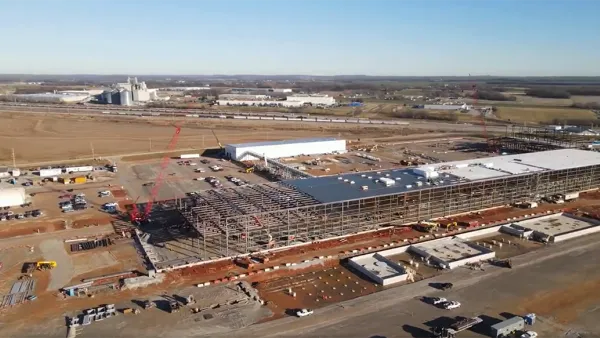Dive Brief:
-
German elevator maker Thyssenkrupp has developed a new concept elevator system that aims to reduce energy consumption during idle periods and render the system net-zero energy, according to the company.
-
To lower energy use, the elevator cabins can be set to "hibernation" or "sleep" modes. The system is connected to an on-site, 3.75kW rooftop solar array whose dimensions match the footprint of the elevator shaft and generates the energy needed to run the system.
-
The company tested the system for a multi-year period in a six-story, century-old building in Boston that had roughly 50 occupants daily. The elevator to which the system was applied required no machine room and is designed for use in low- to mid-rise buildings.
Dive Insight:
As buildings get taller, vertical transportation technology is in a race to keep up. The latest innovations aim to reduce machine-room size, offering faster rides over longer runs, and streamlining destination dispatch while managing access to floors and entire buildings. And, like the latest from Thyssenkrupp, many such advances also aim to reduce energy consumption.
One building where Thyssenkrupp has helped achieve speed over distance in vertical transport is at One World Trade Center, in New York City. Each of the 1,776-foot-tall tower's five elevator cabs can travel at speeds of up to 23 miles per hour, moving from ground level to the top (102nd) floor in one minute, likely making them the fastest lifts in North America, according to The Telegraph. Beyond speed, the cabs will generate power from the energy created when braking, producing 300kW of energy used to help run the building's lighting.
Elevator company Kone is also pushing the limits when it comes to making elevator systems more efficient. The company debuted its carbon fiber UltraRope in 2013. The lightweight alternative to steel cables requires less energy to operate and less room to store, making it capable of handling longer runs. Kone elevators using UltraRope are being installed in the 3,281-foot-tall Jeddah Tower, in Saudi Arabia.
While signature projects are bringing attention to high-tech elevator systems today, modernization efforts to update existing elevators with new technology for energy and operational efficiency will dominate the market through 2020, according to Allied Market Research. The smart elevator market is expected to reach $23.16 billion by 2020. After that, activity in the space will center on new construction.


